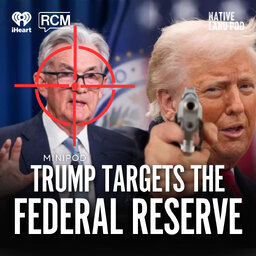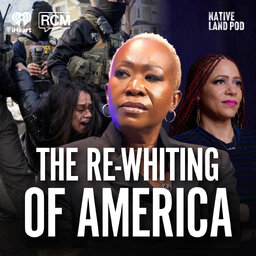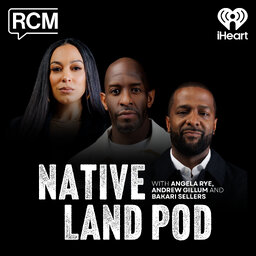Organizing Playbook part 3: power takes planning. Assemble the right folks and set timelines for organizing.
As you make your group of concerned citizens, there are some important do’s and don'ts. Andrew Gillum goes over timelines and goal-setting; it’s important to give folks realistic expectations.
The third edition of an ongoing series on how to organize and get plugged into The Fight. We all have a role to play and we all MUST play a role in opposition to this authoritarian administration.
Check out this spreadsheet of organizations to join, volunteer, or donate to: https://docs.google.com/spreadsheets/d/13Qxu32zcQNhVRNkhSy2oy0IDLY4VVLhuZC9N-2FXLTQ/edit?usp=sharing
Want to ask Andrew a question? Subscribe to our YouTube channel to participate in the chat.
Welcome home y’all!
—---------
We want to hear from you! Send us a video @nativelandpod and we may feature you on the podcast.
Watch full episodes of Native Land Pod here on YouTube.
Native Land Pod is brought to you by Reasoned Choice Media.
In 1 playlist(s)
Native Land Pod
In the spirit of the last stanza of the Black National Anthem, we rise from the past, rooted deeply …Social links
Follow podcast
Recent clips

Why the Federal Reserve Investigation Should Concern You | MiniPod
24:07

The Re-Whiting of America
1:43:32

ICE is Cold: Know Your Rights | Angela Rye SoloPod
28:05
 Native Land Pod
Native Land Pod